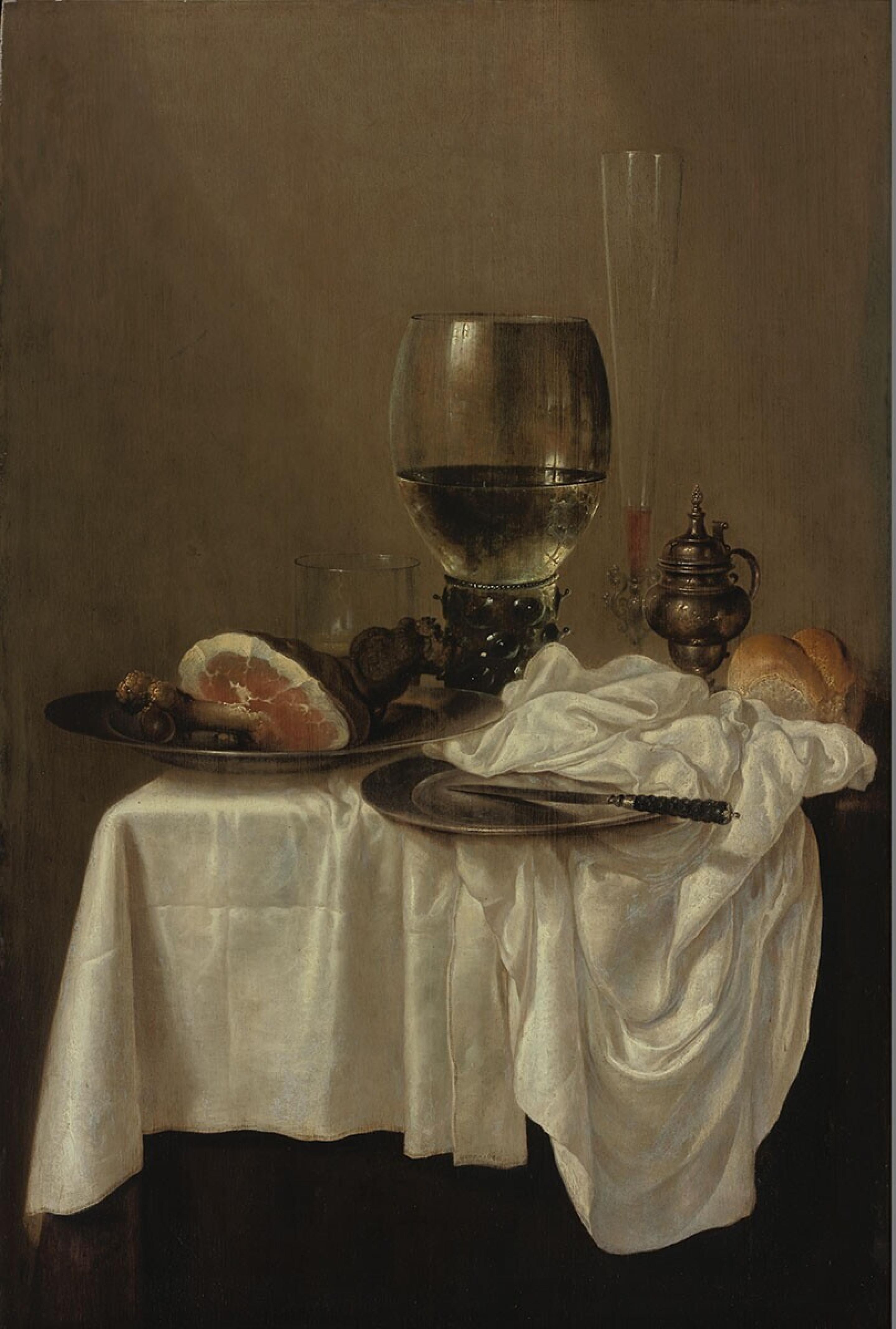Willem Claesz. Heda lived his whole life in Haarlem and in 1631 became a member of the St Luke guild, where he filled a range of positions. Heda painted so-called monochrome still lifes, also known as 'monochrome suppers', paintings where the colours were close to each other. These still lifes were made almost exclusively in Haarlem. His contemporary and fellow city-dweller Pieter Claesz. is another exponent of this method of painting. Later, Heda would also paint sumptuous still lifes.

Willem Claesz. Heda
Haarlem 1594 - Haarlem 1680





